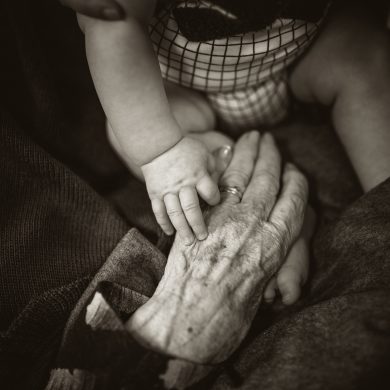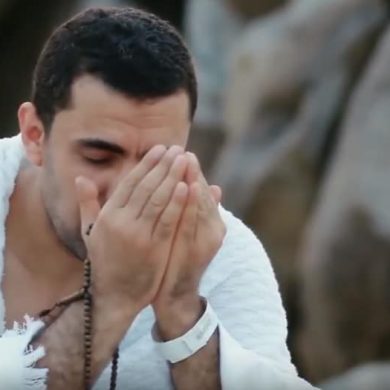Ramadan is one of the world’s biggest annual events. It is a month-long occasion in which 1.8 billion people all over the world participate. So what exactly is Ramadan? And what does it mean? Read the Q&As below to find out.
Questions below are intended for anyone who is interested in learning about Islam. They are arranged from general to specific for easier understanding of the context of Ramadan.
What is Islam?
Islam means submission to God. The message of Islam is simple and universal; it is essentially to believe in one God and to live a just and moral life. Islam provides guidance on how to uphold the rights of God, your family, the poor, orphans, animals and every aspect of life. It is not only a religion, but a way of being.
To be a Muslim is to submit to the One God who is our loving and merciful Creator, Allah. Allah guided humanity by sending a chain of messengers in every land and place. Muslims believe in all these messengers including Adam, Abraham, Moses, Jesus and Muhammad, peace be upon them all. Submission to the One God is the same message of all the Prophets since the beginning of humanity. That’s why it is erroneous to think that the teachings of Islam originated only 1400 years ago, when in fact, Islam (submission to God’s will) is the oldest and also the longest continuing religion.
What is Ramadan?
Ramadan is the ninth month in the Islamic calendar and is a time for reflection, prayer and strengthening one’s connection to God. Muslims worldwide fast from dawn to sunset, abstaining totally from food, drink, and other pleasures to achieve greater self-discipline, self-purification, and compassion for those less fortunate.
Allah explains in the Holy Qur’an:
شَهْرُ رَمَضَانَ الَّذِي أُنزِلَ فِيهِ الْقُرْآنُ هُدًى لِّلنَّاسِ وَبَيِّنَاتٍ مِّنَ الْهُدَىٰ وَالْفُرْقَانِ ۚ فَمَن شَهِدَ مِنكُمُ الشَّهْرَ فَلْيَصُمْهُ ۖ وَمَن كَانَ مَرِيضًا أَوْ عَلَىٰ سَفَرٍ فَعِدَّةٌ مِّنْ أَيَّامٍ أُخَرَ ۗ يُرِيدُ اللَّهُ بِكُمُ الْيُسْرَ وَلَا يُرِيدُ بِكُمُ الْعُسْرَ وَلِتُكْمِلُوا الْعِدَّةَ وَلِتُكَبِّرُوا اللَّهَ عَلَىٰ مَا هَدَاكُمْ وَلَعَلَّكُمْ تَشْكُرُونَ – 2:185
The month of Ramadhan [is that] in which was revealed the Qur’an, a guidance for the people and clear proofs of guidance and criterion. So whoever sights [the new moon of] the month, let him fast it; and whoever is ill or on a journey – then an equal number of other days. Allah intends for you ease and does not intend for you hardship and [wants] for you to complete the period and to glorify Allah for that [to] which He has guided you; and perhaps you will be grateful (Qur’an 2:185).
How do you know when Ramadan starts?
Muslims know it when Ramadan begins when the new crescent appears. Islam uses a specific lunar calendar, called the Hijri calendar, that follows the cycle of the moon. It is named after the hijra (migration) of the Prophet Muhammad from Makkah to Madina in the year 622AD. This event marks the start of the calendar. There are 12 months of which Ramadan is the ninth. The calendar is very accurate since it does not need leap days and is in tune with the nature of the cosmos. Another benefit is, if Muslims want to know where they are in the month, they can simply look up at the moon in the night sky, one of God’s greatest signs.
What is the purpose of fasting?
Fasting has many deep and philosophical benefits but simply, Ramadan is a training course for people to become more righteous as per the Qur’anic verse:
يَا أَيُّهَا الَّذِينَ آمَنُوا كُتِبَ عَلَيْكُمُ الصِّيَامُ كَمَا كُتِبَ عَلَى الَّذِينَ مِن قَبْلِكُمْ لَعَلَّكُمْ تَتَّقُونَ – 2:183
“O you who have believed, decreed upon you is fasting as it was decreed upon those before you that you may become righteous” (Qur’an 2:183).
When the material and spiritual side of fasting are combined, the result is a spiritual awakening and strong willpower that enables one to be watchful over their actions, feelings & thoughts. One learns to become the master of themselves instead of a slave to their desires. Another effect of fasting is that it awakens your societal awareness and makes you think of others by experiencing the feeling of deprivation.
Abstention from food is only one step to make one realise that if they can, in obedience to Allah’s commands, abstain from that which is otherwise lawful outside of Ramadan (such as drinking water), how more necessary it is that they should abstain from that which is unlawful.
It makes one realise, that if they can during Ramadan, abstain from things that are normally permissible (such as drinking water), how more necessary
Apart from fasting, what do Muslims do in Ramadan?
Muslims must engage in a variety of good deeds throughout the year but are especially encouraged to do acts in Ramadan such as:
- Extra prayers
- Reading more Qur’an
- Giving more charity
- Seeking forgiveness from Allah (swt)
- Feeding the hungry
- Changing bad habits
- Seeking knowledge
- Sharing a meal with family and friends
- Abstaining from lying, backbiting etc.
An example of a prayer that should be said each day during Ramadan:
In the name of Allah, the Beneficent the Merciful
O Allah, gladden the people of the graves,
O Allah, enrich every poor person,
O Allah, satisfy every hungry one,
O Allah, clothe every unclothed one,
O Allah, help every debtor pay his debts,
O Allah, relieve every distressed one,
O Allah, free every captive,
O Allah, return every traveller (to his home),
O Allah, cure every sick one,
O Allah, ease our poverty by Your wealth,
Surely You have power over all things.
Why does Ramadan begin on a different day each year?
Because Ramadan is a lunar month, it begins about eleven days earlier each year as compared to the Gregorian calendar. Throughout a Muslim’s lifetime, Ramadan will fall both during winter months, when the days are short, and summer months, when the days are long and the fast is more challenging. In this way, the fast becomes evenly distributed between Muslims living in the northern and southern hemispheres.
What are the times of fasting?
A Muslim who intends to fast rises an hour or two before dawn and has an early breakfast, called suhoor. The fasting period begins one and half-hours before sunrise, at which time all eating and drinking must stop. The fast is broken at sunset, usually with dates and water, followed by the main meal after prayers. This meal is called iftar, meaning the meal with which one breaks their fast.
Can you drink water?
No, fasting includes abstaining from both foods and drinks. Instead, Muslims ensure they remain hydrated by drinking enough water in the non-fasting hours. It is totally expected for the fasting individual to experience some hunger and thirst during the day, that is part of training the temptations of the self in Ramadan.
Who must fast?
Fasting is compulsory for all Muslims, however there are some exceptions. God’s mercy means that only those who are mentally and physically fit, past the age of puberty, not travelling, and are sure fasting will not cause real physical harm, need to fast. If possible, the missed days of fasting are made up later, or the Muslim must feed the poor an average full meal or its value per missed day.
Does a person’ s strength reduce due to not eating or drinking in the day?
Missing a few meals is not the same as starvation. In fact, Muslims usually eat a similar amount of food but it is just eaten at specific times rather than throughout the whole day. Muslims generally will feel more tired than usual at the start of Ramadan, but the body adapts. Apart from the spiritual benefits, this also has health benefits by giving the digestive system a break.
What is Eid-ul-Fitr?
Eid-ul-Fitr is a celebration that marks the first day of the new month after Ramadan when the fasting comes to an end. On this day, Muslims are obliged to pay a prescribed amount of money to assist the poor and disadvantaged (called Zakat-ul-Fitr). Other activities on this day are: Eid prayers at the mosque, visiting family & friends, visiting the sick & elderly, gift-giving to children.
We hope this answers your questions about Ramadan. If you have any other questions, comment below and we will try our best to answer them.
Note: Some Q&As are adapted from https://www.icv.org.au/about/about-islam-overview/ramadan/





